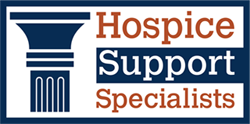You may feel like your program is the only one that isn’t growing, but we hear from programs all over the country that they are not able to move beyond a certain census. It happens more often that you would imagine. With so many hospice and home health markets saturated with competing programs that offer the same services, it can be difficult to grow to your goals. Is this because your goals are too lofty? Is the problem that there is no room to grow? Is there another underlying issue? The answers to these questions are not easy to find, but there are some things that you can do to identify some underlying needs.
Here are a few simple questions that we ask our growth clients that help to evaluate where some changes might be needed in processes and management of the program that will enhance growth.
Question #1: What is your strategic growth plan? Is it written down?
Often the answer is either “no” or “sort of” or even some other very vague explanation. The truth is that the old strategy of “throw it on the wall and see what sticks” doesn’t work. Business development is more than just knocking on doors, asking for referrals, knowing the right people and buying lunches. A deliberate plan that targets very specific referral sources, details actions that will be taken to open doors, and that sets goals and expectations that are grounded in real data (and reality) is a key piece of a growth plan. AND it isn’t enough to write it down! You need to be accountable to taking those steps, making those calls and when there are barriers, searching for alternate strategies to get in the door. It just isn’t enough to keep checking in at the front desk with pens and Post-it ® notes.
Question #2: What is your data telling you? Let’s talk about live discharges, revocations, NTUCs, conversation rates, same day admissions (we could go on forever)…
If you don’t have data, or you don’t have the right or accurate data, you’re going to be at a disadvantage. We often find that data reveals underlying process issues, eligibility problems, and even clinical management concerns. It isn’t enough to keep admitting patients if they are leaving as quickly as they are admitted via revocation or death. Simple math dictates that if admissions do not exceed discharges, you will not grow. Don’t base your plans and actionable changes on anecdotal evidence, always rely on the real data for your program. Far too often we believe we know what the underlying problem is because we are being told something, but when we look at the data there is a very different story that unfolds.
Question #3: What exactly are you selling? What is your value proposition? What makes your product better than the competition?
“Our team are the best” is an answer that is equal to not having a strategic plan. Everyone’s team is “the best” or they wouldn’t be employed. Having strong clinical programs, differentiators and offering the highest quality of care and service are critical to maintaining and growing. Your sales team may open the door to new referrals, but it is your intake process and response, your clinical product and your delivery of care that is going to keep them referring. Offering 24/7 responsiveness, hassle free admission process and having flawless communication are not negotiable in a competitive industry. Why choose you if someone else is going to do it better?
Addressing the answer to these questions can identify growth edges and opportunities that can make a big difference. Small changes can have big consequences.
If you are stuck, Hospice Support Specialists consultants are experts at working with our clients to answer these questions and more. We will help you to identify your growth barriers, customize processes, growth strategies and clinical product improvements that will help you get unstuck! Call us or reach out today for a free consultation to explore your needs, options and next steps.


